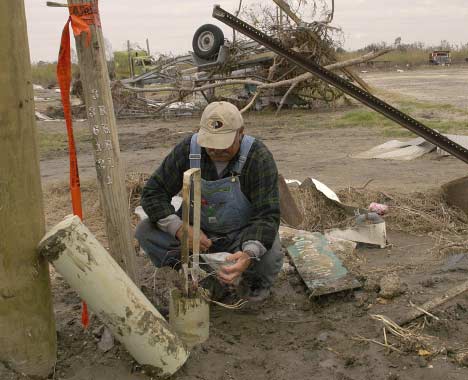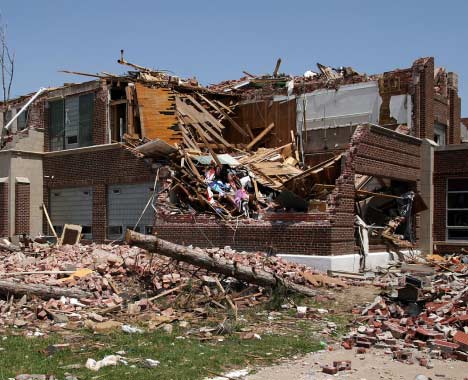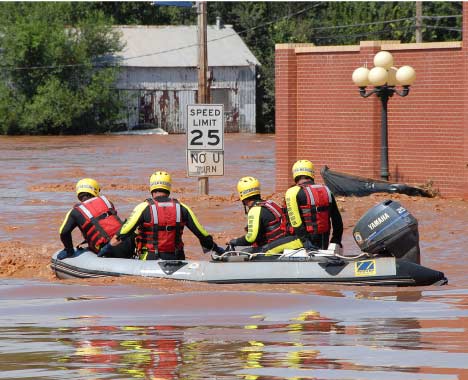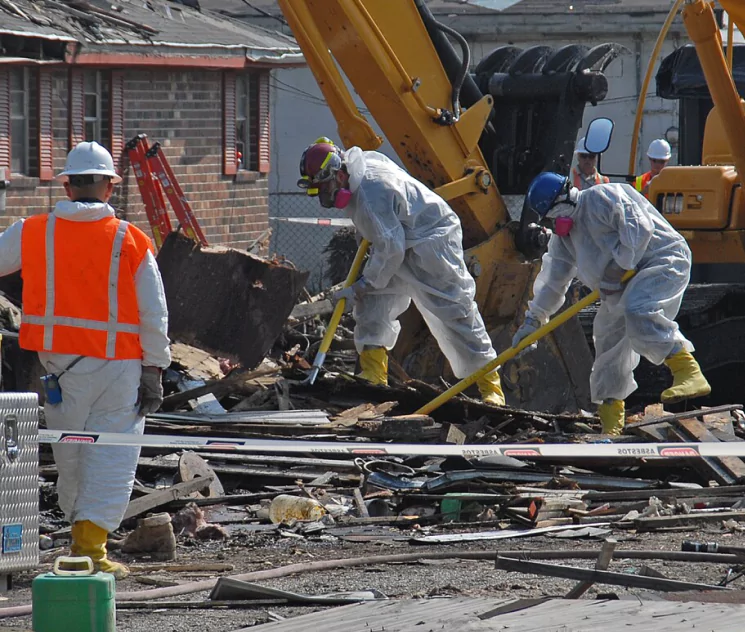Does your community need help rebuilding?
Mutual aid resources are available to assist with post-disaster recovery needs like:
- Performing detailed building inspections and damage assessments.
- Issuing emergency permits for temporary repairs and shelters.
- Enforcing updated building codes and hazard mitigation measures.
Benefits of mutual aid for rebuilding
Rapid Response

Mutual aid allows communities to quickly mobilize additional qualified personnel to handle the surge in inspections and permit requests that typically occur after a disaster.
Cost-Effective Solution

Utilizing mutual aid is often more cost-effective than hiring temporary staff or contractors, as partnering jurisdictions typically only seek reimbursement for direct costs.
Reduced Strain on Staff

By bringing in outside assistance, mutual aid prevents burnout of local staff who may be overwhelmed by increased workloads following a disaster.
Consistency in Enforcement

Mutual aid personnel are usually familiar with building codes and standards, helping ensure consistent and proper enforcement of regulations during rebuilding.
Examples of how communities can use mutual aid for post-disaster rebuilding

Mutual aid from nearby counties helps residents assess hurricane damage quickly
After a severe hurricane, a mid-sized city finds its building department overwhelmed with inspection requests for damaged structures.
The city activates its mutual aid agreement with neighboring counties, bringing in additional certified inspectors to help clear the backlog.
This allows residents to quickly determine if their homes are safe to occupy and expedites the start of repair work, significantly reducing the time people spend in temporary housing.

State assistance helps small town recover after tornado damage
A small, rural town with limited resources is hit by a tornado, damaging numerous buildings.
The town's single part-time building inspector is unable to handle the volume of work needed for rebuilding.
Through a state-wide mutual aid program, the town receives assistance from building officials from larger cities, who help process permits and conduct inspections.
This support ensures that rebuilding efforts comply with current safety standards and progress swiftly.

Experts from other states assist urban neighborhood after flood
In an underserved urban neighborhood, a flash flood damages many older homes and small businesses, overwhelming the already understaffed local building department that lacks expertise in flood-related repairs.
Through a mutual aid agreement, the city brings in floodplain management experts and additional permit processors from other states to address the community's needs.
This targeted assistance speeds up the recovery process and helps implement flood-resistant building practices, improving the neighborhood's long-term resilience.

